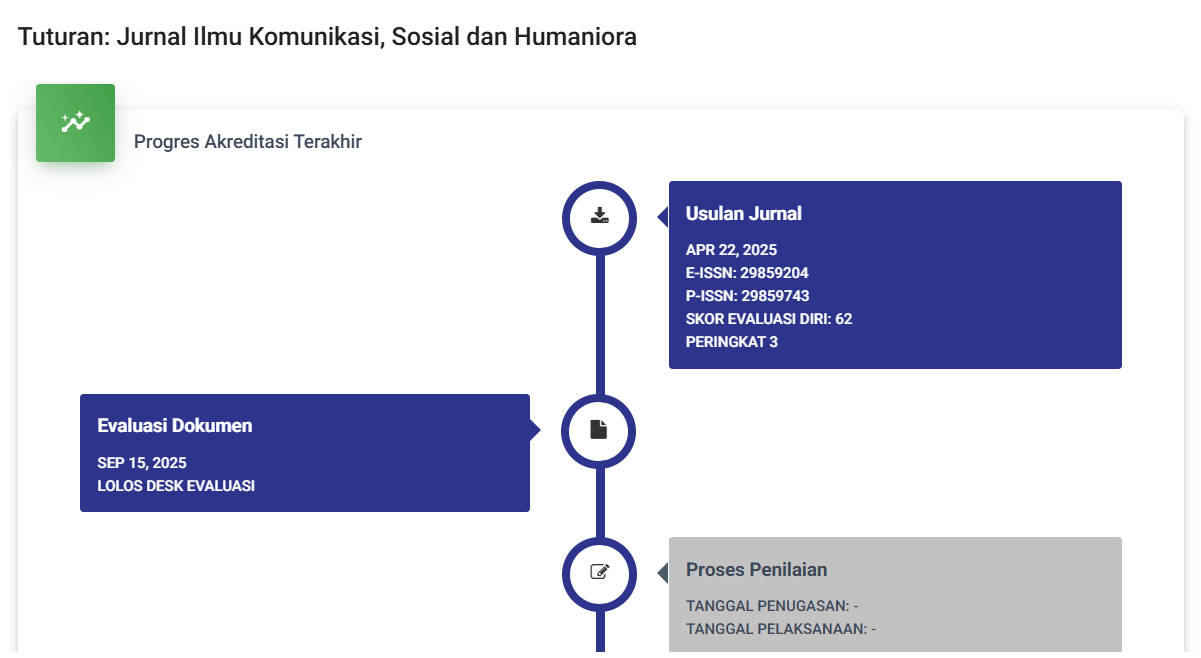Aku Tidak Peduli, Walaupun Aku Harus Mati untuk Mengejar Impianku : (Study Fenomenologis Fanatisme Otaku)
DOI:
https://doi.org/10.47861/tuturan.v3i1.1559Keywords:
Anime, Fanaticism, OtakuAbstract
Anime is currently becoming popular among people in various parts of the world including Indonesia, many people like anime and some are even fanatical about anime. Based on this, the researcher conducted a study that aimed to find out how fanatical the three participants were towards anime. .The sample in this study was 3 people using a purposive sampling technique. The data collection method was through semi-structured interviews and then interview transcripts were analyzed using Interpretative Phenomenological Analysis (IPA). There are two superordinate themes found, namely: self-change and the search for identity. The implication of this research is to find out how anime fanatics or also known as otaku affect the personal identity of the participants, to find out how the participants face challenges in finding their identity amidst social pressures and excessive expectations from the surrounding environme without ignoring the participants’ interest and interest in otaku culture.
References
Adorno, T. W., Frenkel-Brunswik, E., Levinson, D. J., & Sanford, R. N. (1950). The Authoritarian Personality. New York: Harper & Row.
Agustina, H. (2015). Konsep Diri Otaku Anime di Kota Serang. Universitas Sultan Agung Tirtayasa.
Allport, G. W. (1954). The Nature of Prejudice. Reading, MA: Addison-Wesley.
Anggara, Rangga, & Ika Febrian Kristiana. 2017. Pengalaman Fanatisme Pada Penggemar Akihabara (AKB) Grup (Sebuah Penelitian Kualitatif Studi Fenomenologis). Universitas Dipenogoro Semarang.
Bahtiar, M. & A. (2021). Fanatisme Terhadap Anime dan Perilaku Konsumtif. Journal Of Psychological Research, 1(2), 70–75.
Chung, E., Beverland, M. B., Farrelly, F., & Quester, P. (2008). Exploring consumer fanaticism: Extraordinary devotion in the consumption context. Advances in Consumer Research, 35, 333–340.
Creswell J. W. (2007). Qualitative inquiry & research design: Choosing among five approaches.
Dweck, Carol S. (2006). Mindset: The New Psychology of Success. New York: Random House, Inc.
Fromm, E. (1941). Escape from Freedom. New York: Farrar & Rinehart.
Hogg, M. A., & Abrams, D. (1988). Social Identifications: A Social Psychology of Intergroup Relations and Group Processes. London: Routledge.
Lestari, N., & Widodo, D. (2018). "Fanatisme dalam Perspektif Psikologi Sosial". Jurnal Psikologi Sosial Indonesia.
Mackellar, J. (2006). Fanatics, fans or just good fun? Travel behaviours and motivations of the fanatic. Journal of Vacation Marketing. 12(3), 195–217. https://doi.org/10.1177/13567667060 64622
Patrick W. Galbraith. (2009). The Otaku Encyclopedia: An Insider’s Guide to the Subculture of Cool Japan.
Restu & Agustina. (2017). Peristiwa Komunikasi dalam Pembentukan Konsep Diri Otaku Anime. Jurnal Kajian Komunikasi, 5(2), 202–209.
Robles, M. U. (2016). Fanaticism In Psychoanalysis.
Saldana, J. (2013). Coding Manual for. Suantari, N. W. E. P. (2016). Dunia Animasi. 67. https://www.academia.edu/20117174/Dunia_Animasi
Sugiyono. (2012). Metode Penelitian Kuantitatif, Kualitatif, dan R&D. Alfabeta.
Sugiyono. (2016). Metode Penelitian Kuantitatif, Kualitatif, dan R&D. Alfabeta.
Sugiyono. (2019). Metode Penelitian Kuantitatif, Kualitatif, dan R&D. Alfabeta.
Sukarman, M. M. (2021). Fanatisme Otaku Terhadap Anime One Piece (Studi Kasus Pada Komunitas Nakama Istimewa Yogyakarta). Universitas Islam Indonesia.
YF La Kahija. (2017). Penelitian Fenomenologis.
Downloads
Published
How to Cite
Issue
Section
License
Copyright (c) 2024 TUTURAN: Jurnal Ilmu Komunikasi, Sosial dan Humaniora

This work is licensed under a Creative Commons Attribution 4.0 International License.








